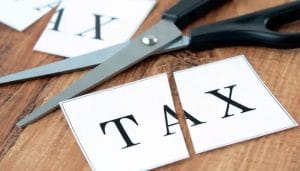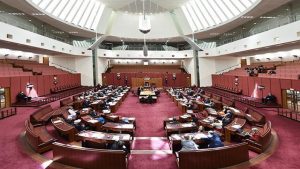What does the Coalition’s win mean for you?
Now that the Coalition has, somewhat miraculously, been re-elected, what does it mean for borrowers and homeowners of Australia?
There is no doubt that the key policy battle ground during the election campaign was on housing.
Labor’s platform was that investors weren’t somehow “worthy” of negative gearing taxation benefits, even though it has been a policy for anyone with income producing assets for decades.
Likewise, the vast majority of property investors only own one dwelling, so being portrayed as “greedy” was never going to sit well with about 1.7 million Aussies.
The Coalition had a fight on its hand to convince the voting public that investors weren’t to blame for high property prices, but they ultimately prevailed.
Deposit help

This was also partly due to their announcement of the First Home Loan Deposit Scheme six days before the election.
The policy will guarantee deposits of up to 20 per cent for first-timers who have saved five per cent and earn under $120,000 for singles and $200,000 for couples.
The scheme is due to come into effect on 1 January 2020, which will likely require applicants to be pre-approved as well as buy dwellings within certain price ranges.
Tax cuts on the way
Apart from housing, the Coalition’s election platform was fundamentally about the economy, with policies to increase jobs and deliver tax cuts, all the while restoring the budget to surplus.
Some of the major policies include tax relief for low and middle-income earners, with a tax offset implemented from 1 July that is forecast to provide $1,080 for about 4.5 million workers.

In fact, the Coalition’s longer-term tax plan will see about 94 per cent of taxpayers pay no more than 30 cents in the dollar.
When it comes to small businesses with an annual turnover under $50 million, the Coalition plans to reduce the company tax rate to 25 per cent.
It will also implement an instant asset write-off to $30,000, which will be expanded to medium-sized businesses as well.
The policy aims to help small and medium businesses invest in the machinery and equipment they need to grow.
Returning the budget to surplus will assist the government to create 1.25 million jobs over the next five years as well as invest $100 billion in major infrastructure projects across the country, according to their election policies.
Mortgage broking to remain unchanged
When it comes to the mortgage broking industry, the Coalition had previously announced that it would not push forward with any of the absurd recommendations from the royal commission into the banking sector.
Of course, that is good new for our sector, but it is better news for consumers who stand to benefit from increased competition in the lending landscape.
Where to from here?
A returned Coalition government will provide some much-needed stability for our economy, but its promises and policies are only part of the solution.
Firstly, that’s because there will need to be cross bench support for many of these ideas to become a legislated reality.

Ditto, when it comes to the Senate, which ultimately decides which policies become laws and which become also-rans.
That said, in the lead-up to the election, it was clear that the Senate had more in common with the Coalition’s policies than the Australian Labor Party’s so many of these policies might get over the legal line.
The First Home Loan Deposit Scheme is one policy that has the potential to stimulate activity in the property market, but there needs to be others.
The economy, while reporting low unemployment rates, continues to tread water at best.
Wage growth is benign as is inflation, which recently hit zero. Government stimulus is required and action needs to be taken.
While some people think this is a good thing because prices aren’t going up, it actually means that the economy is going backwards to a degree.
The Reserve Bank is also ready to pull the trigger on an interest rate cut or two, but it really doesn’t have enough left in the tank to make much of a difference economically.
That’s why the re-elected government needs to create fiscal and regulatory stimulus packages as well.
There are brightest minds than mine that can determine what these need to be, but one of the easiest to implement would be to get banks’ lending again by halting the ridiculous hoops that good borrowers are still having to jump through.
So while ScoMo settles back into power, one thing he could do to get the economy moving again is to give lenders the go-ahead to open their purse-strings.
What I mean by this, is that we’ve had a regulatory lead tightening of credit policy over the last 2 or 3 years and in my opinion, it’s now gone too far and is stagnating economic growth.
The regulators, in particular APRA, need to have a greater understanding of what they have done and allow the banks to relent a little on some things such as serviceability rates (Yes, loans are still serviced by lenders at around 7.25% even though their home loan is likely to be half that rate) to allow money to flow to those who can afford it.
That would make a big difference to the economy almost overnight.
We want a balanced market where both 1st homeowners can get into the market and investors can still prosper as these fundamentally point to the “great Australian dream” and to quote Clive Palmer “Make Australia Great”.
We look forward to seeing what ScoMo and the Liberals do in the next 100 days in power and what it sees fit to follow through on and what it doesn’t. Watch this space everyone…
- Don’t buy property in a trust before reading this - February 3, 2026
- When should you refinance? Navigating RBA rate cuts and loyalty rates - January 23, 2026
- What the latest inflation data means for borrowers with the upcoming February RBA decision - January 20, 2026

